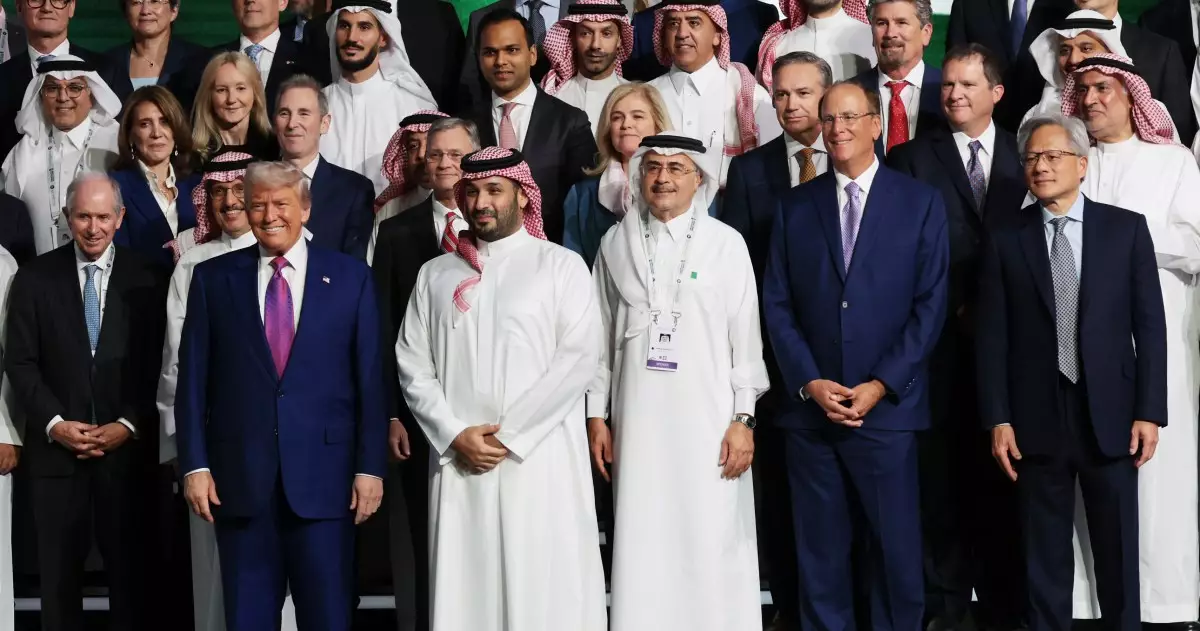In an industry shaped by rapid advancements and fierce competition, Nvidia’s position as a titanic player in AI chip manufacturing is not merely a result of technological superiority; it is embedded within a web of strategic maneuvers and political affiliations. As the demand for AI technology skyrockets, Nvidia has made it clear that maintaining its market dominance requires more than innovation—it necessitates deft political navigation. With the recent lifting of US export limitations on AI chips, Nvidia is poised to capitalize on an increasingly favorable climate for its business interests, while systematically dismantling the regulations that pose risks to its profit margins and market share.
The Regulatory Advantage
The US Department of Commerce’s rescission of the recently established Artificial Intelligence Diffusion Rule is a pivotal moment for both Nvidia and the nation’s tech ecosystem. Initially intended to restrict the flow of US-made AI chips to countries perceived as threats, this rule, proposed under the Biden administration, threatened to encumber American companies with insurmountable compliance hurdles. By effectively eradicating these constraints, the new policy clears the path for Nvidia to fortify its 90 percent share of the AI chip market without the fear of international competition adversely affecting its sales.
From this perspective, it becomes evident that this decision reflects the underlying ethos of a profit-driven, politically incentivized tech landscape. By framing the removal of the AI Diffusion Rule as a necessary measure to bolster innovation and preserve diplomatic relations, the Department of Commerce inadvertently elevates the power of corporations like Nvidia. While the potential long-term impacts on global competition should raise eyebrows, they may well be overshadowed by the immediate financial gains for Nvidia and the endorsements it gathers from sympathetic political figures.
A New Era of Political Alliances
Nvidia’s strategic alignment with the Trump administration illustrates just how intertwined technology and politics have become. CEO Jensen Huang’s recent appearance alongside Trump’s delegation at an investment summit in Saudi Arabia underscores this sentiment. Historically, Huang has treaded a fine line when it comes to aligning with political figures, and his recent actions indicate a willingness to leverage these relationships for his company’s advantage. Herein lies a critical observation: when corporate leaders prioritize political collaboration, the broader implications for market dynamics become increasingly alarming.
The US’s substantial push against competitors such as Huawei—whose AI chip technology marks a significant alternative in the global market—demonstrates a concerted effort not just to protect domestic technology, but also to actively suppress rival advancements. In warning that any use of Huawei’s technology would violate export control agreements, the US government isn’t just acting as a gatekeeper; it is enacting a strategic campaign to stifle potential competitors.
The Morality of Market Dominance
At what point does the pursuit of corporate gain overshadow ethical considerations in the tech world? As Nvidia capitalizes on regulatory changes and seeks to eliminate any obstacles in its path, it sparks important dialogue about the intersection of technology, innovation, and morality. The reshaping of international relations influenced by corporate agendas raises questions about the long-term health of the global tech ecosystem.
Moreover, the suggestion that these regulatory adjustments are in service of American innovation raises valid concerns. While it is easy to champion the economic benefits brought forth by deregulation, one must also contend with the ramifications that arise from diminishing the competitive landscape. By opting for short-term success and profitability, are we inadvertently fostering an environment where monopolistic behaviors flourish unchecked?
A Fragile Reality
As companies like Nvidia solidify their market dominance amidst favorable political conditions, the ramifications for smaller players and regional competitors cannot be understated. The aggressive push to eliminate barriers may yield immediate benefits for Nvidia and its shareholders, but it simultaneously erects an impenetrable barrier for emerging firms aiming to stake a claim in the AI chip arena. This reality is a precarious one, dictating not only the competitive fabric of the tech industry but also the innovation landscape that could emerge from a diverse marketplace.
Ultimately, the narrative surrounding Nvidia is a cautionary tale—one that highlights the volatile interplay of market forces and political power. The future of AI technology hangs in the balance, as corporations mobilize to adapt and flourish in an environment shaped by their own design.

